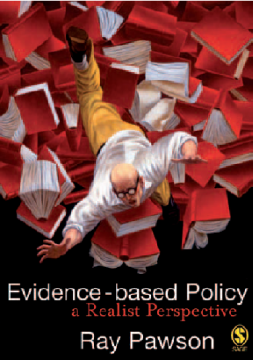
Additional Information
Book Details
Abstract
In this important book, Ray Pawson examines the recent spread of evidence-based policy-making across the Western world. He examines the methodological assumptions that lie behind this drive for government departments, academic research projects and NGOs to adopt an evidence-based approach, when so little has been done to ask what works in an evidence-based context. The book sets out on a search for best practice in evidence-based research and policy-making, and examines the longer-term weight of evidence that can be accrued from evaluating the outcome of such studies from around the world.
Table of Contents
| Section Title | Page | Action | Price |
|---|---|---|---|
| A note on language | |||
| Acknowledgements | |||
| Part 1: Introduction | |||
| Why this book? | |||
| Setting out the issues: | |||
| an interview with B.Venkatesh | |||
| Part 2: The issues | |||
| The experience of disability | |||
| The politics of disability: what is at stake? | |||
| Disability and development: the basics | |||
| Towards social action | |||
| Language and numbers | |||
| Part 3: Case studies | |||
| Zanzibar: starting from scratch on CBR and Social action | |||
| Zimbawe: forming a disability movement | |||
| India: social action in a highly complex society | |||
| Jordan and the occupied territories: community action with disabled children in refugee camps | |||
| Lebanon: rebuilding civic consciousness | |||
| Part 4: Conclusions | |||
| Disability and liberation | |||
| Notes | |||
| Appendix: some organisations dealing with disability and development | |||
| Suggestions for further reading | |||
| Index |
